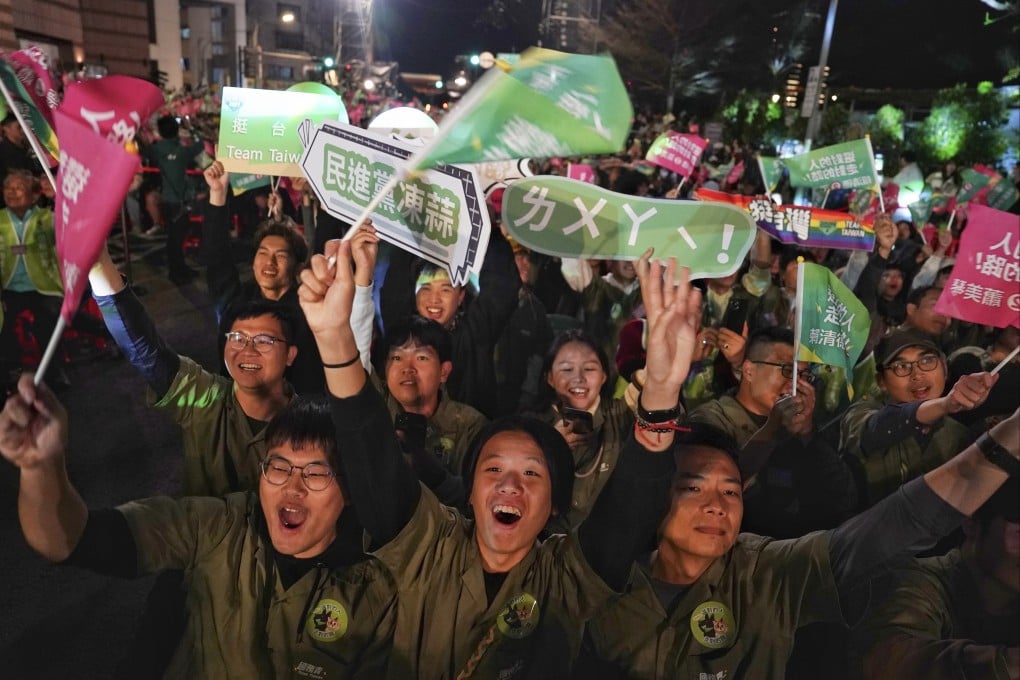Taiwan election 2024: results sound early knell for opposition hopes
- Around an hour after the polls had closed, some opposition supporters had already accepted that it was not to be their day
- Pre-election opinion polls had consistently put the DPP’s William Lai ahead of his two rivals, and results sound bore out this prediction

At around 8pm – four hours after the polls had closed – the two other candidates, the Kuomintang’s Hou Yu-ih and Ko Wen-je from the smaller Taiwan People’s Party – both threw in the towel and conceded defeat.
But even an hour into the count, some of their supporters had already accepted that it was not going to be their day.
“I’m not disappointed, I knew he was unlikely to win,” one of Ko’s supporters, a 45-year-old named Huang, said.
The Taipei resident who works in the logistics industry had brought his daughter along with him to mingle with the crowds rallying outside Ko’s campaign office to watch the results coming in and it was already clear that their candidate was trailing in third place in line with the pre-election opinion polls.
“The votes Ko got are already way more than I expected given his manpower and resources available as a third-party candidate,” Huang said.